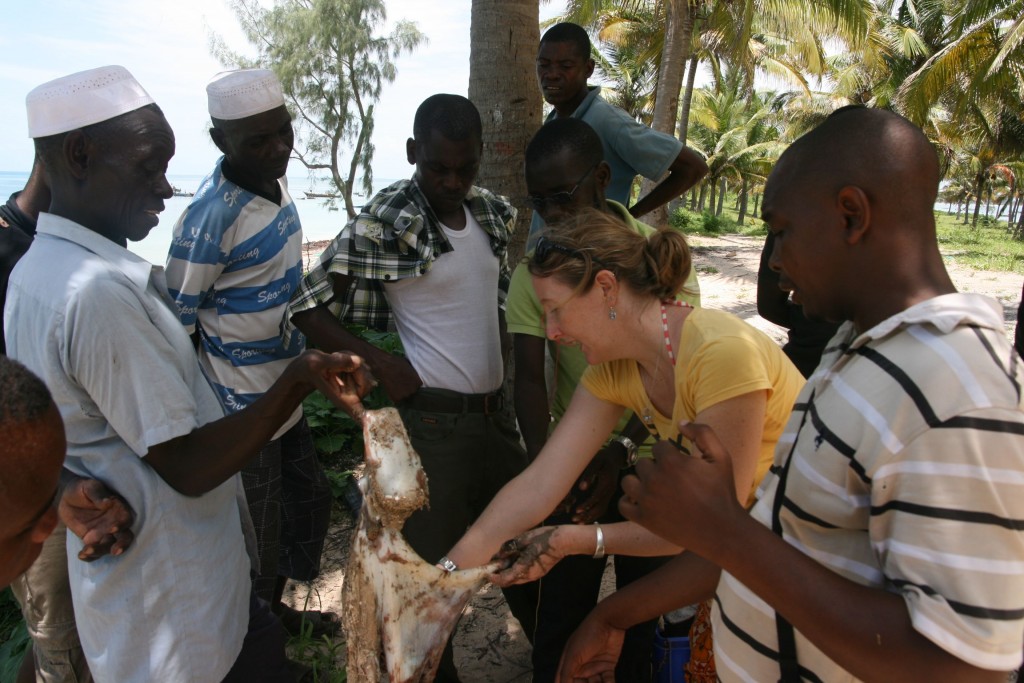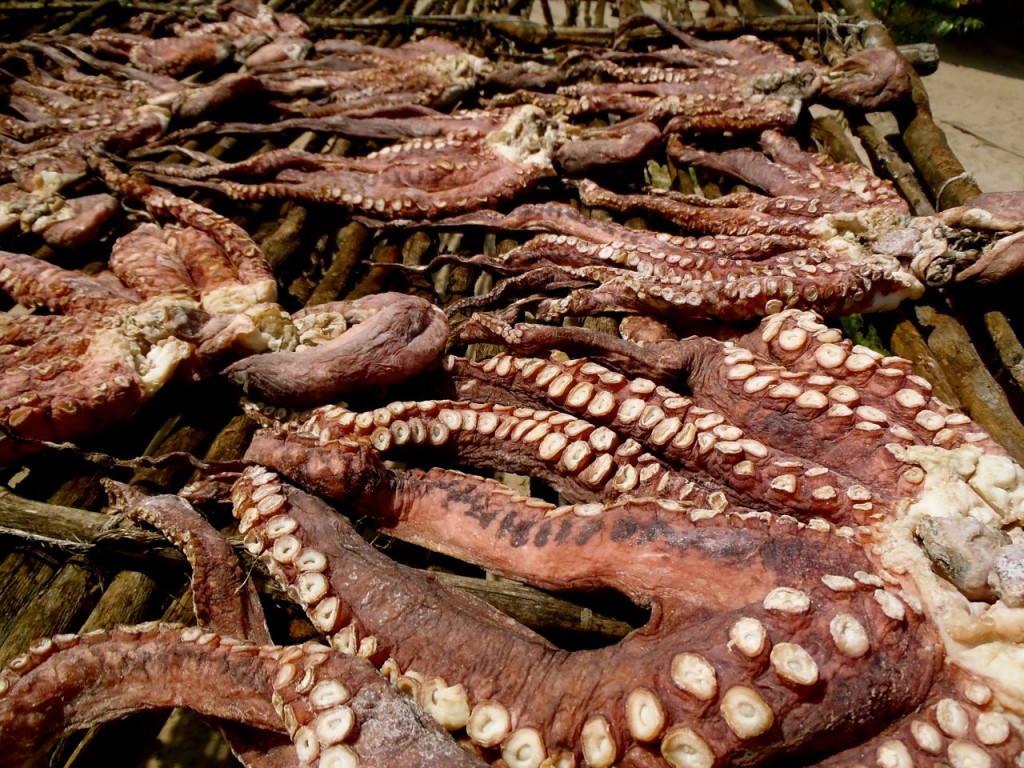It’s a good job I don’t mind getting my hands dirty! I’m standing on an island in the bay of Mocimboa da Praia in northern Mozambique with the sun beating down, and a group of about ten fishermen crowded around as I delve into an impromptu lesson on how to tell the sex of an octopus (or ‘polvo’ as it’s called in Portuguese)! Covered in octopus ink, slime and sand, the fishers laugh at me as I demonstrate how octopus reproduce by the male inserting his third arm into the head of the female through the siphon. Bizarre? Yes! Cool? Definitely!
Ten minutes later these same fishers are demonstrating this technique to their friends who have just pulled up in another boat with more octopus. Nothing like the coconut wireless to transmit messages on a small island!

Photo credit: Mike Riddell, Bioclimate
Demonstrating that local management of marine resources can benefit the fishers themselves, the fast-growing octopus is an old friend of Blue Ventures. Working with local communities in Madagascar for the past 10 years, Blue Ventures has demonstrated that protecting octopus over their growth and reproductive phases can result in greater catches and improved income for fishers.
Octopus is not only a target species for small-scale fishers in Madagascar but also throughout the western Indian Ocean, and Mozambique, where 80% of catches are made by small-scale fishers, is no exception.
I find myself on this island at the invitation of the Mozambican NGO AMA and their Edinburgh-based partner Bioclimate. I’m here to understand the context in which octopus fisheries exist and operate in Mozambique, and to draw on Blue Ventures’ experiences in community-led fisheries management to advise AMA and Bioclimate on how octopus reserves work, and if and how they could be established in this area of Mozambique.
For the next few hours I find myself working through an exercise that we have called “reef to plate” with the AMA technicians, local fishers and octopus traders. Understanding what happens to the octopus after it has been caught is important so that any management strategies are discussed and agreed by all of the stakeholders, and to ensure that if there is a boost in production there is sufficient capacity within the market to support it.
In southwest Madagascar, local export company Copefrito collects fresh octopus directly from the villages, transferring it directly to its processing plant in the city of Toliara, where it is packaged and exported around the world. In Mozambique they have a different way of doing things though… Once the fisher lands the octopus, it is sold directly to a local trader. These traders then process the octopus, removing the ink sacs and beating the octopus to tenderise the meat, before salting it and drying it on racks in the hot Mozambique sun.

Each of these local traders then sell their dried octopus to larger-scale traders known as Padrão. These Padrões may live on the islands but more commonly live on the mainland (or even as far afield as Tanzania), and visit the islands where they buy large amounts of octopus before sailing on to the larger national markets (or back to Tanzania).
These trading chains will make managing this fishery more complex, as building support for temporary closures from such a diverse field of stakeholders will require considerable coordination… Watch out for my next update from Mozambique, as we continue to find out more with our friends at AMA and Bioclimate!
This project is led by AMA and Bioclimate, and funded by the UK Department for International Development (DFID). Blue Ventures would like to thank staff from both organisations for their support and hospitality throughout the visit.

